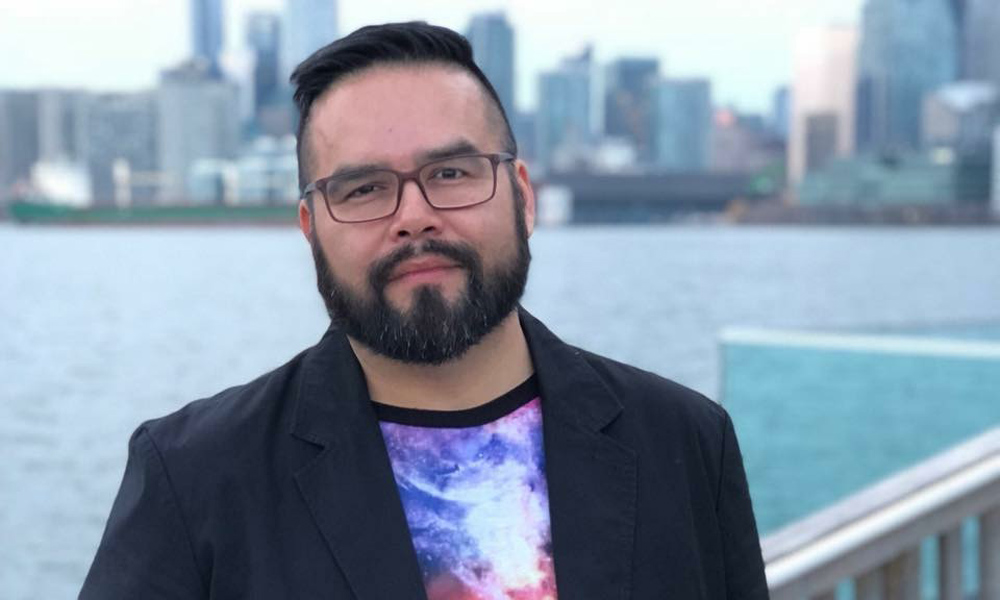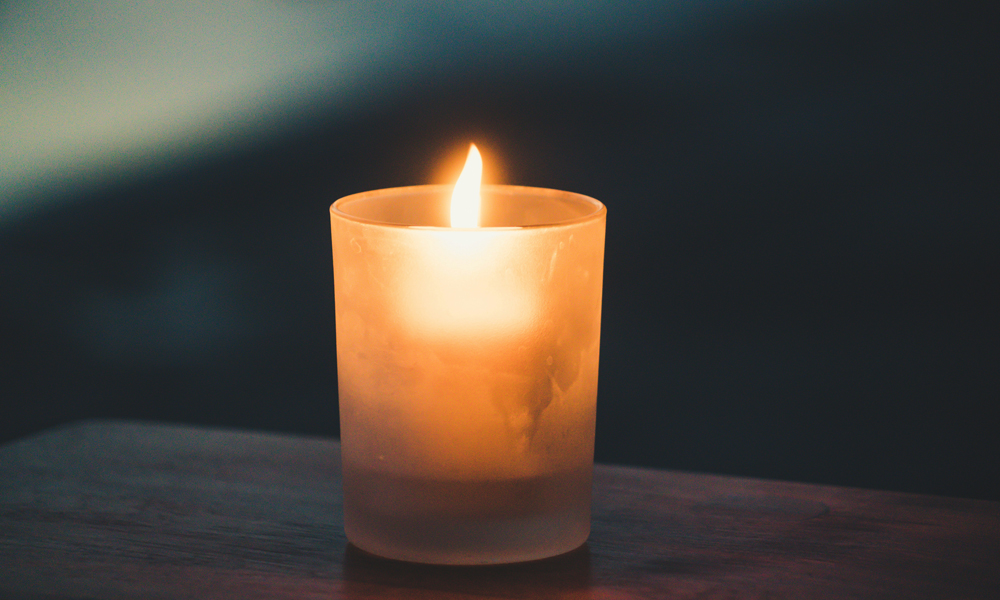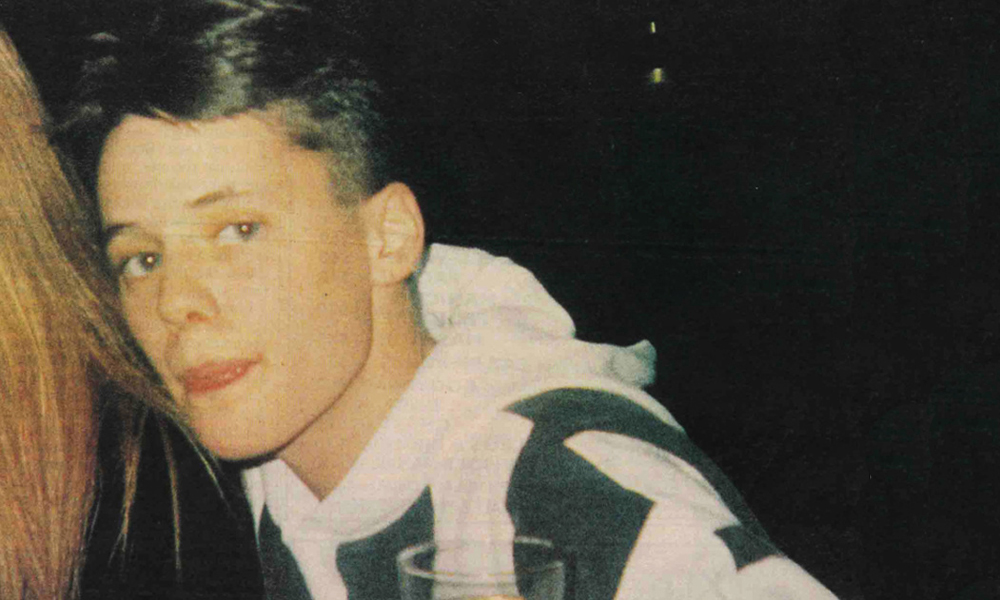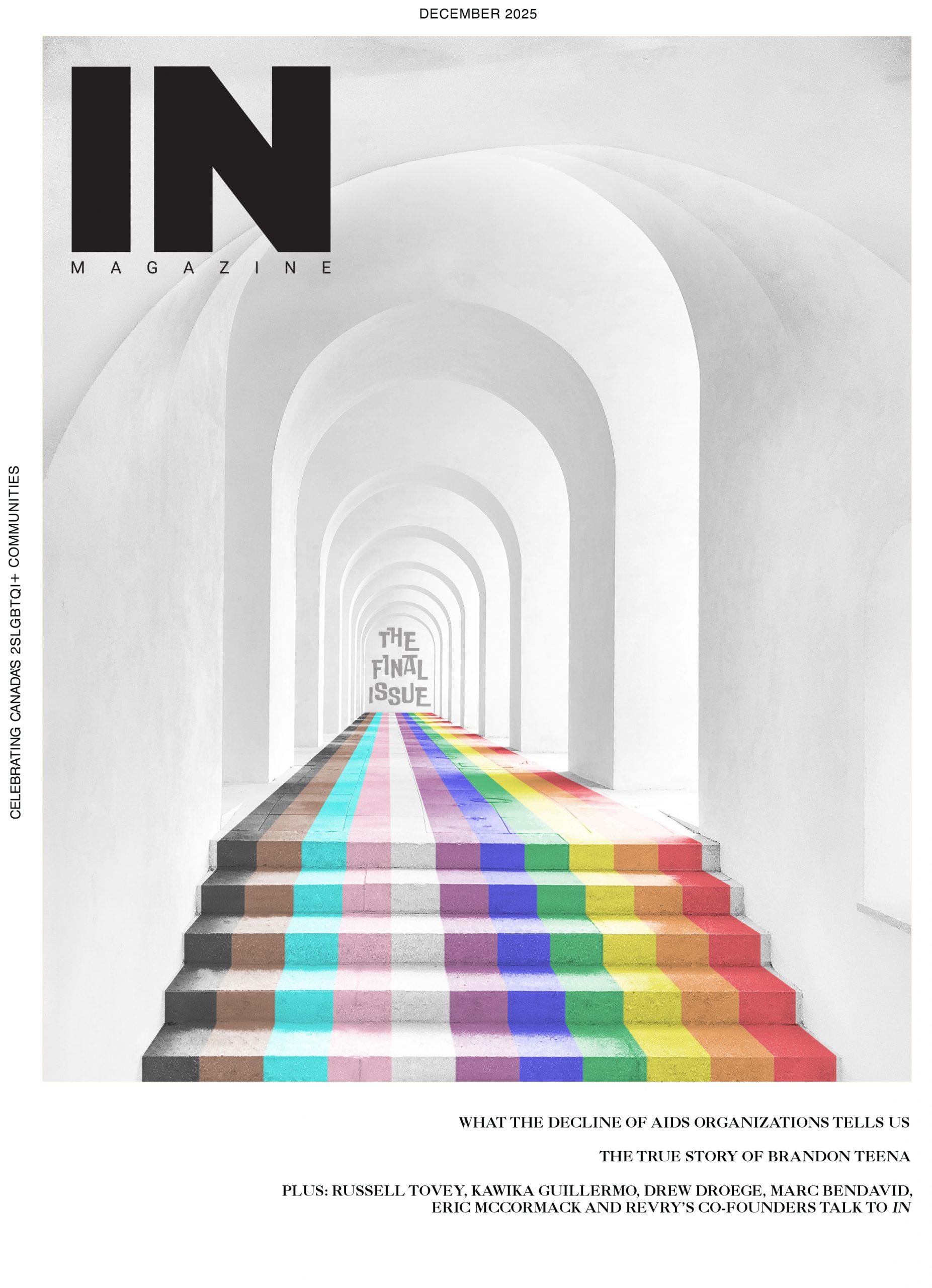Organization works to foster a strong, healthy and independent two-spirit community in Toronto…
Keith McCrady (pictured above) and I play email tag for a couple of days. We’re trying to coordinate a time to chat, and there’s a lot of looking at calendars and hastily drafted emails before we can finally decide on a time that works.
It’s no wonder. Not only is McCrady, executive director at 2-Spirited People of the 1st Nations, currently interviewing people for the role of HIV educator at the organization, but he’s also still ramping up his role as spokesperson for two-spirited people within the Indigenous and LGBTQ2 communities. According to 2-Spirited People of the 1st Nations, in traditional Indigenous culture, elders spoke of people who were gifted among all beings because they carried two spirits: male and female. These individuals were looked upon as a third gender in many cases and were, in most cases, revered. In Indigenous cultures, two-spirited people were often considered healers and visionaries and the center of communities.
McCrady, who is Ojibwe, Cree and two-spirited, didn’t apply for the job of executive director—he was invited to apply by the board, and took that invitation to lead the agency in a new direction. “I felt like I really needed them to know who I was and what my philosophy, my pedagogy, was, and the way that we learned with people. Really, it was really important for me and also the two-spirit identity, which historically could mean many things to many people. And I felt as though maybe there was too much focus on the HIV/AIDS part of that healing, and so I basically gave them a vision of what the agency could be in what we could do with the community.”
Part of that vision, McCrady says, was to take the organization from being one where people say “it does wonderful things—we just don’t know what it does,” to one that fosters a strong, healthy and independent two-spirit community in Toronto, one where HIV infections will be rare and two-spirited people can live with pride in their Indigenous heritage. “I think that from my experience, the Indigenous community wants to learn, share and grow together—but it’s not organized,” explains McCrady. “People in the Indigenous community, let alone the non-Indigenous community, don’t really fully understand what two-spirited is. We’re still trying to teach everyone all at once, and so I feel like in my experience, it really needs to start with our own community and kind of sharing that information.”
McCrady’s family teachings play a strong role in his mandate at 2-Spirited People of the 1st Nations: as well as being two-spirited himself, he grew up with transgender and two-spirited people in his family. For him, being two-spirited means being the person who connects the genders together and being the person that anyone can speak with. “I think that the role of being two-spirited is really to talk about anything, especially when you modernize things. So it’s about talking about sexuality, about the way we work with children and the way we work with families, in the way that we support families in roles like auntie and uncle. There are specific roles for people, and I think that’s what I really want the two-spirited community to remember. It’s just as accurate as saying two-spirit is part of the LGBTQ2 spectrum. It is a gender identity, and if there was a box to click—male, female, two-spirit—I think it’s very accurate to say that that is the gender of some people.”
The organization has received enough funding plus the original part-time role to create a full-time role for an HIV educator. McCrady wants that person to be someone who can go out into the Indigenous and LGBTQ2 communities. “I want the person in this role to come and say, ‘Here’s what we want people to know,’ and talk to other people living with HIV/AIDS and say, ‘This is our story and here’s what we need you to know about working with us in the community, and here’s what our role is going to be,’” he says. “It might be a workshop presentation or a sharing circle or a story, depending on what they decide, and so I thought it was a great opportunity. The second part of it is, who are they going to share that information with? I think it should be children, families, community, and all the other people who aren’t connected to Toronto’s LGBTQ2 community from the Indigenous community.”
RENÉE SYLVESTRE-WILLIAMS is a Toronto-based journalist. She has been published in Forbes, Flare, Canadian Living and The Globe and Mail.






POST A COMMENT